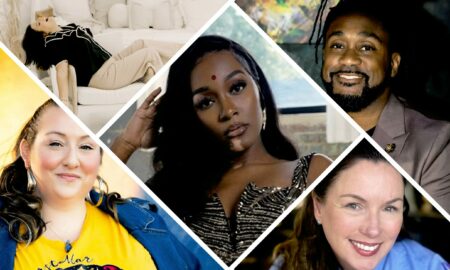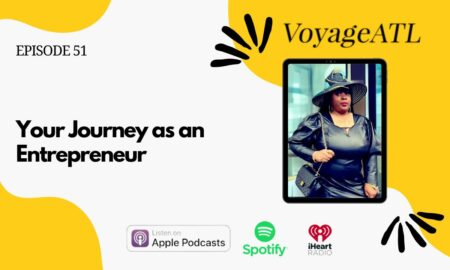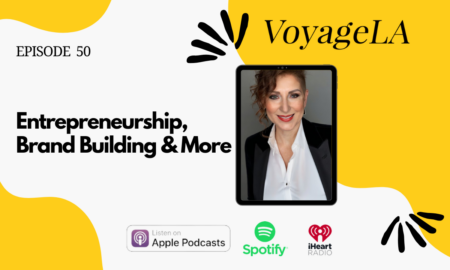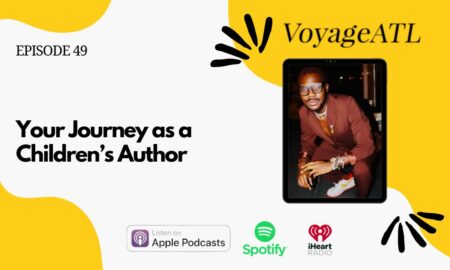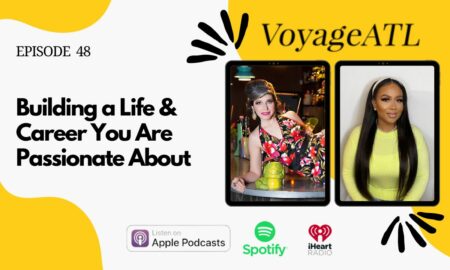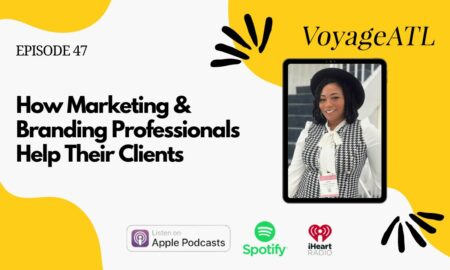

Today we’d like to introduce you to Mary Kay McBrayer.
Mary Kay, let’s start with your story. We’d love to hear how you got started and how the journey has been so far.
This is an ending-where-you-started sort of narrative. A hero’s journey, minus the hero, kind of, where you end up in the same place, totally changed. It’s hard to talk about yourself, so I picked the most lofty of meta-narratives. I hope y’all ready.
I wrote stories during recess before I learned to put spaces between words — long before I could blame my disinterest in sports on menstrual cramps (though I definitely did that, later). Part of what disengaged me from sports was that they had no narrative: things were the same before as they were after the game, they didn’t allow for the human condition, and the worst thing of all was that I couldn’t let my mind reflect on what kind of birthday cake my protagonist would prefer without someone’s ball flying into my fucking face.
I thought, when I was 18, that I was interested in people, so I majored in anthropology. Within a year, I knew their stories were what made people interesting to me. Or, maybe not even their stories, but their motivations and how each of ours intersect. What makes people do the things that we do? And why do we do different things when no one is looking? And why do we rationalize those actions after the fact, no matter how shitty we know them to be? At asking those questions, I decided, probably-maybe I should shift focus into psychology. That, too, was a bust. Turns out, that wandering mind I had when I was supposed to have my head in the game does not compartmentalize the traumas of others well. I served briefly at a residential mental health facility for at-risk youth, which was easily both the most rewarding thing I’ve ever done in my whole stupid life and the least sustainable for me personally. And what I really wanted to do from the beginning was write stories, anyway.
Right now, I’m an English professor — a position for which I’m totally qualified, thanks to my Masters of Fine Arts in Creative Nonfiction (creative writing), and I do love teaching, especially when I get to talk about craft in creative writing, but among my stories and storytelling and character development, I realized along with my somewhat apathetic 18-year-old freshmen students that not every story holds my interest. In the words of one of my favorite authors, Cormac McCarthy, If it’s not life or death, it’s not interesting.
Which brought me to horror. Here’s where all my interests collided, anthropology, psychology, and writing. You know how people say that those who can’t do, teach? That’s a straight-up fallacy. If you want to know how to REALLY do something, you have to know it well enough to teach it, otherwise, you’re just shooting in the dark and hoping there’s a target at the end of the stall. I started building my syllabi around pieces of horror, whether they be poems about zombies, fiction about vampires in love, essays about pet unicorns, or contemporary horror film. When I was vetting some of the material before I taught it, I found the story of Jane Toppan. If you haven’t heard of her, it’s because history has largely erased her.
She was America’s first female serial killer, and she was a nurse during the Victorian period. She was absolutely a monster. But all of the details of her indentured servitude, the ethnic prejudice against her, and the family history of mental illness and emotional abuse made me wonder, what kind of monster? Her life, the way she was made into what she was, or how she already was what she was, is the subject of my novel manuscript, which is currently in the drafting stages.
Jane Toppan’s story — and MUCH of the other material I waded through — helped me realized that most horror is very poorly done, and it frustrated me because I could see its potential in the story itself, but other elements of the writing were lazily executed. (I maintain that this disconnect is the main reason why horror is thought of as a low-brow form of entertainment.)
Another thing I realized while I was teaching all this terror and tragedy was that I shouldn’t say every crazy thing that came to mind in front of a classroom of impressionable, moldable minds, so I had to bury that shit deep inside me, post some of the better-formed thoughts on Twitter, or text it to my friends. And one day, my friend Maegan and I were chatting about The Shining — that’s a lie. I was diatribing about how I loathed the narrative and its convention (or lack of it). How LIKING something doesn’t make it GOOD — I like plenty of terrible movies. The only thing about The Shining I did like is that Jack Nicholson can get it, I don’t care how old he is, I’d do pretty much whatever he asked as long as he did that creepy eyebrow thing, and she said, We should host a horror movie comedy podcast.
That’s how we co-founded Everything Trying to Kill You.
We’re always bombarded by how great it is to pursue your passion, etc – but we’ve spoken with enough people to know that it’s not always easy. Overall, would you say things have been easy for you?
Haha! I think you know you’re not really asking a question here! Nothing worth doing is easy, and like Mick Jagger said, Anything worth doing is worth overdoing. That means, to me, if your road is smooth, you need to go harder.
That said, no, it has not been a smooth road. I have a terminal fine arts degree, which makes me basically overqualified and equally underqualified for most positions. The academic market is so saturated that out of grad school, most of my cohort went into different fields. For example, I worked in hospitality for more than a year before I could find even part-time work teaching. I currently work in academia until I can get paid (I mean REALLY paid like private-jet paid) to write the story that I want to read. The trick is to make all the detours in the meantime work for you. Work smarter, not harder, as they say. When I was in hospitality, I asked every single person who worked in that business hotel, What’s the craziest thing you ever saw working here? (Let me tell you. The Overlook Hotel might have demon topiaries, but the place I worked had WAY more imminent drama.) Now that I’m teaching, I tailor my class’ syllabi to accommodate my professional development. We started a podcast (out of pocket) because we had shit to say (or at least shit to talk), and we were pretty sure that other people wanted to hear it. It’s the JOURNEY, see? (This is a Hero’s Journey/meta-narrative callback. PRAISE ME FOR MY HUMOR.)
So let’s switch gears a bit and go into the Everything Trying to Kill You, The Horror Movie Comedy Podcast story. Tell us more about the business.
My best friends Maegan Stone Brooks, Mary Beyer, and I host a comedy podcast that analyzes horror movies. It’s called Everything Trying to Kill You. One of the things that I’m most proud of about this project is that we’re doing it ourselves, which means it’s as great as we can make it, and there’s no one telling us what we can and can’t do. The other thing that makes me proud of us is that no one is paying us to do this (yet): we did it of our own volition. That’s hubris.
We’re also women talking about horror movies, which is fairly uncommon — we’re supposed to talk about true crime exclusively, right, now that it’s on-trend? — and we are also all three women of color (all of different ethnicities), which lends us additional perspective when talking about horror films, specifically.
For example, in any given horror movie, who dies first? (It’s the POC or the slut, right? Well. Among US, who dies first? EXACTLY.) (That was a joke.) (I’m also pretty proud that we’re usually pretty hilarious.) (One of my favorite one-liners is when we started our holiday episode, as soon as we hit Record, Mary yelled, “It’s Mariah Carey season, bitches!”)
How do you, personally, define success? What’s your criteria, the markers you’re looking out for, etc?
I try to take criticism selectively, and I try to let most of my self-worth be internal, but let’s be honest: you have to care how your work is received. I feel like if anything I write, or anything that we say on the podcast gets a strong emotional reaction out of someone, it was a success. Similarly, if something that I wrote or said makes someone have a realization, or see something from a new perspective, that’s a win. You know how sometimes you can watch a show, and then three days later, you’ll find yourself in the detergent aisle of a grocery store, thinking about it, and the meaning dawns on you? That’s success. That’s what I want.
Pricing:
- You can stream our podcast for free on iTunes, Google Play, or Spotify!
Contact Info:
- Website: www.everythingtryingtokillyou.com
- Email: everythingtryingtokillyou@gmail.com
- Instagram: EverythingTryingtoKillYou
- Facebook: https://www.facebook.com/EverythingTryingtoKillYou/
- Twitter: https://twitter.com/horrowshowgirls
- Other: https://itunes.apple.com/us/podcast/everything-trying-to-kill-you/id1302914946?mt=2





Getting in touch: VoyageATL is built on recommendations from the community; it’s how we uncover hidden gems, so if you know someone who deserves recognition please let us know here.













